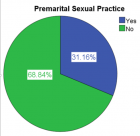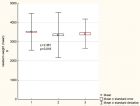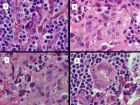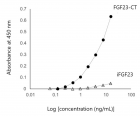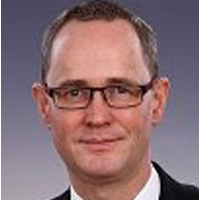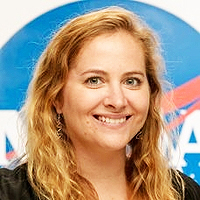Table of Contents
Caring Difficulties of Parents’ Towards Children with Cerebral Palsy
Published on: 16th May, 2017
OCLC Number/Unique Identifier: 7317593954
Children with cerebral palsy may have one or more of mental, psychomotor, visual, audio or speech problems. Not being a well-defined disease with clear boundaries, it is regarded as a set of conditions caused by various reasons. In this regard, child... ren with CP have to depend on their families or caregivers and cope with physical, mental, social and economic problems due to their condition. Therefore, it turns out to be crucial to determine the needs of the family with children with CP so that the programs that will assist them during this process can be developed. The study further revealed that the parents of the children with cerebral palsy needed information about controlling their children’s behaviors and teaching them certain behaviors; they needed to talk to the teacher and/or therapist of the child; they needed support about making time for themselves; they needed community services about finding a care center or a nursery suitable for their children’s needs. Show more >
Dealing with Depression in Family Caregivers
Published on: 27th March, 2017
OCLC Number/Unique Identifier: 7317595274
Aims and objectives: By reporting the use of therapeutic nursing interventions to facilitate the process of change in a depressive elderly caregiver, this paper seeks to underline the importance of fitting interventions to individual clients.
Backgro... und: In assisting families of chronic illness sufferers, it must be remembered that the perceptions and functions of both clients and families are determined by family members, and that changes, if any, are made by those clients and families, rather than by nurses. However, nurses do play an important role in facilitating the process of change.
Design: This is a case report.
Methods: A case study of a depressive elderly caregiver is used to examine the use of therapeutic nursing interventions to facilitate the process of change with problem analysis, case conceptualisation and specific skills employed documented.
Results: The change from one therapeutic approach (Cognitive-behavioural therapy) to another (Narrative Therapy) facilitates enlisting the caregiver’s unique strengths, resources and competence to overcome the difficulties and challenges identified during the process of change. In dealing with depression in family caregivers, nurses should not only be flexible but also remain sceptical in using different approaches, with heightened awareness of the client’s circumstances. Show more >
The Outcome of an ADHD Parenting Group Training Programme (APEG) In the Peterborough Neurodevelopmental Service (NDS)
Published on: 27th January, 2017
OCLC Number/Unique Identifier: 7317597712
ADHD is the most common neurodevelopmental disorder in children and adolescents with prevalence ranging between 5% and 12% in developed countries. There is ample evidence that carefully structured enhanced behavioural parenting programmes are useful ... in the management of ADHD.
We assessed the outcome of an ADHD group parenting training programme (APEG) offered between 2014 and 2015 by the Peterborough Neurodevelopmental Service (NDS) in improving the knowledge and skills of carers using a pre-/post-training intervention study.
APEG follows a Parent Advisor Model, consisting of a 6-session programme of evidence-based parenting training.
A total of 27 parents completed the 53 pre- and post-course questionnaires. The knowledge and understanding of the parents increased significantly about all aspects of ADHD diagnosis and management in response to all the 5 questions. The difference between the scores of 0 to 3 and 4 or 5 pre- and post-intervention was statistically significant (chi square 239, df 1, p value <0.01).
The study suggests that provision of a psychosocial intervention programme for parents of ADHD children through the APEG parenting training proved to be effective in significantly improving the level of knowledge and understanding of parents regarding several aspects of ADHD diagnosis, symptom identification and behaviour control. Show more >
A Multidisciplinary Approach to the Assessment and Management of Pre-school Age Neuro-developmental Disorders: A Local Experience
Published on: 8th January, 2017
OCLC Number/Unique Identifier: 7317600168
Background: Early and effective identification of childhood neurodevelopmental disorders remains a critical task of all pediatric healthcare professionals, which is critical to the well-being of children and their families.
Methods: A retrospective r... eview of medical records of all preschool children referred to a Child Development Centre (CDC) in North-West England, over a six-month period between Sept 2014 and Feb 2015 was conducted. The local multi-professional approach to the clinical assessment and management of preschool children was described and the published literature on this topic was reviewed.
Results: Twenty four different categories of professionals spanning the whole range of primary, secondary, and tertiary healthcare, social care and educational services were involved in the management of the patients. The largest group of professionals was the primary healthcare specialists. The ten different primary care professionals managed an average of 42% of the patients.
The secondary healthcare providers were involved in the care of an average of 17%, tertiary care providers 10%, educational specialists 25% and social care professionals were involved with 5% of all the patients.
The commonest diagnostic disorders were Speech/Language delay (56%), Global developmental delay (33%), Behavior difficulties (26%), Social communication concerns (21%) and Autistic spectrum disorder (19%).
Conclusion: The high number and specialties of various healthcare professionals at all levels of care indicates the high social and economic investment required in managing the affected preschool children in the region. Childhood neurodevelopmental disorders in the preschool age represents a high level of public health significance. Show more >

HSPI: We're glad you're here. Please click "create a new Query" if you are a new visitor to our website and need further information from us.
If you are already a member of our network and need to keep track of any developments regarding a question you have already submitted, click "take me to my Query."







